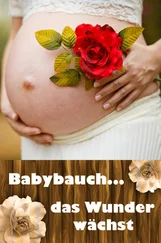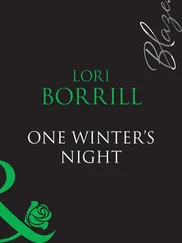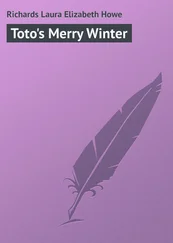Holly pushed the door open a little more this time, but only enough to put her eye to the crack.
In there, she could see Tatiana lying in the bed, again with her back to the door. Pale arm, dark hair across the pillow. Now her back was bare, and the coverlet was off. Gin’s red dress was on the bedroom floor, and the black dress was hanging over the back of her desk chair. Tatiana couldn’t be asleep already, again, could she? Not with all the noise Holly was making in the hallway.
Still, her daughter didn’t move at all when Holly said, “Please, Tatiana,” and then screamed it: “Tatty! Please! Please open the door!”
Somehow she couldn’t do it yet—break the lock, the symbolic lock—and barge into her daughter’s room. She didn’t know why. She had put it there herself so that Tatiana could escape her mother—hadn’t she?—so how could Holly break that promise by breaking that lock?
And why would she? What would be the point? There was nothing in the room Tatiana could harm herself with, was there? No knives, certainly no guns, not even any scissors that Holly knew of. There were no medications, no Drano, no heavy rope, none of the things a teenage girl might use to cry for help, or to kill herself, or both.
So Holly backed away, feeling ashamed for having screamed. She sat down in the hallway. She put the knuckles of her right hand into her mouth. They were sore. From the knocking. Chafed. Not bloody, though. They tasted like dry bones, or stones, between her lips, and Holly recalled how, several months after her surgeries, after her breasts and her ovaries were gone, she’d felt so sure she would live forever, but also that she was completely empty—that she was nothing but a shell now. That she was not a woman with a future, but a mannequin, a statue, a robot . In one of her first outings after the bandages and the tubes had been removed, she’d gone for a walk along the beach, and had come upon two white stones, side by side, being washed around by a wave, and she’d bent over, picked up the stones, and put them in her mouth.
She had just kept walking, while holding the smooth stones between her palate and her tongue. They comforted her. They tasted rusty, like lake water, but also like blood. And she liked the way their cold lifelessness seemed to warm and soften as she sucked. After a while, Holly had tucked the stones side by side beneath her tongue.
They were her ovaries, she thought, crazily, but somehow certainly. They were her ovaries returned to her! Her ovaries had washed up here from wherever it was the surgeon had tossed them when he’d plucked them out of her. And now they were back inside the soft fleshy tissue of her. She imagined that she felt them throbbing. She imagined she felt them breathing, almost, as if they had gills. She imagined that they were attaching themselves to her again. Eventually, Holly thought, she could swallow them and they would come to life inside her. They would sprout blood vessels, attach themselves back to her, disease-free.
She’d still been weak from the surgeries, Holly knew, that day. Surely that was the reason for such thinking. There’d been some complications, additional surgeries needed, and that had been the first real walk into the world Holly had been able to take alone for months. She’d not been right. After she spat the stones out, she gagged, and then vomited on the sand.
HOLLY TOOK HER knuckles out of her mouth and said, looking up from where she sat in the hallway to her daughter’s bedroom door, “Are you asleep in there, Tatty?” She said it softly, not really having meant for Tatty to hear. If Tatty was sleeping in there, she should just be allowed to sleep. Tatty was tired. Tatty was hungry. Soon Eric would be home. He could talk to Tatty. He could talk to them both.
But Tatty did hear:
A few quiet seconds went by before, from her bedroom, there was an angry shriek—sounding part grief, part frustration—and a sound like a fist punching the headboard of the bed, and then Tatty screaming, “Go away! Leave me the fuck alone! That’s what you do best!”
Holly stood quickly and, to steady herself, put one hand against the wall, palm laid flat between two framed photographs. She took a breath. She looked into one of the photographs. In it, Tatiana had her arms around Eric’s neck. They were smiling. Behind them, a green riverbank. They were standing on the deck of a paddleboat floating down the Mississippi River. It had been a summer vacation, a family road trip they’d taken when Tatty was eleven. Holly had wanted to show her America! She’d wanted to show her Russian daughter America—as if, somehow, Tatty needed to see this country more than any other midwestern child needed to see this country!
But Tatiana wasn’t like those other midwestern children, whose Americanness was utterly unremarkable. Unlike them, Tatiana might so easily still be in Siberia—or somewhere close to Siberia, not even Siberia! The nurses had said they couldn’t be certain that her biological family was not from Kazakhstan, or even Outer Mongolia. They could have been northerners. Migrants. There were still nomadic tribes from that area who made their way south in the early summer—the time of year when Tatiana would have been born—for work, or with herds of animals. The woman, or girl, who gave birth to Tatiana could have come from the north, given birth in Siberia, and returned, leaving Tatiana behind.
But she could just as easily have taken Tatty back with her. Or stayed in Siberia to raise her baby. And, in that case, whatever concrete apartment block, or isolated wooden farmhouse, or yurt that mother was living in would be Tatiana’s home now.
Eric always said, “We’ll take her back someday. We’ll travel all around the area. Maybe we can take the Trans-Siberian Railway, and—”
“Maybe,” Holly would say, pretending. But she would never do such a thing! Tatiana should never see that place! Holly never forgot the nurses urging her to name the baby Sally, or Bonnie (“Bonnie and Clyde, right?”) or she will be back. Holly had known all along, hadn’t she, that they were right?
“Maybe,” Holly would say. “But in the meantime, Tatiana needs to see the United States. It’s more hers than ours.”
Eric hadn’t asked Holly what she meant by that, and Holly couldn’t have explained it if he had.
Now Holly looked from the paddleboat snapshot on the wall to the photograph on the other side of her palm:
In this one Tatiana wore a reindeer-fur hat that Holly had bought for her off the Internet, imported from the Buryatia Republic. Tatty smiled thoughtfully in this photograph, looking like a very typical American girl, but with something ineffably exotic about her—some quality of her elegant face that was brought out by the fur hat and its implications of a vast, snowy continent far away, and long-lost blood relatives who may or may not have been wondering, at that very moment, what had happened to this little girl they had given away.
And they could never have guessed, those long-lost blood relatives, what had happened to that little girl.
How could they possibly have pictured a room like Tatiana’s? The shelves of Harry Potter books and Little House on the Prairie . The iMac and iPod and iPad. The bin of stuffed animals, and the closet full of clean clothes, and the cabinet full of Tatty’s Russian nesting doll collection, and all those lacquered boxes with Russian fairy-tale scenes painted on them?
No. Only the child herself, perhaps, would have been recognizable. The Jet-Black Rapunzel hair. The enormous dark eyes.
“That’s our child!” they might have cried out, seeing her. “Sally! Our Sally!”
“PLEASE, SWEETHEART,” HOLLY said, taking her hand away from the place where it rested between those two photographs on the wall.
Читать дальше
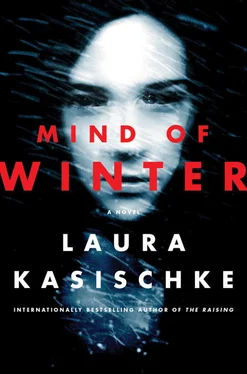

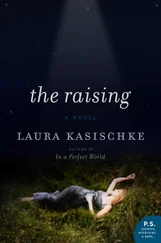
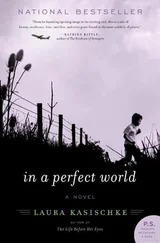

![Джон Харгрейв - Mind Hacking [How to Change Your Mind for Good in 21 Days]](/books/404192/dzhon-hargrejv-mind-hacking-how-to-change-your-min-thumb.webp)
